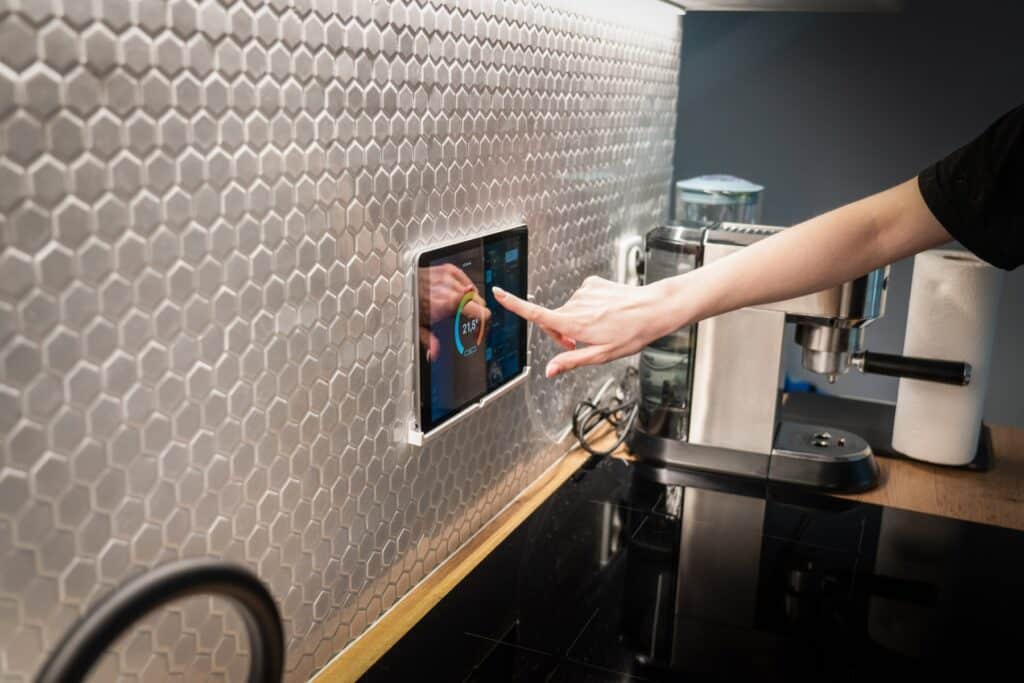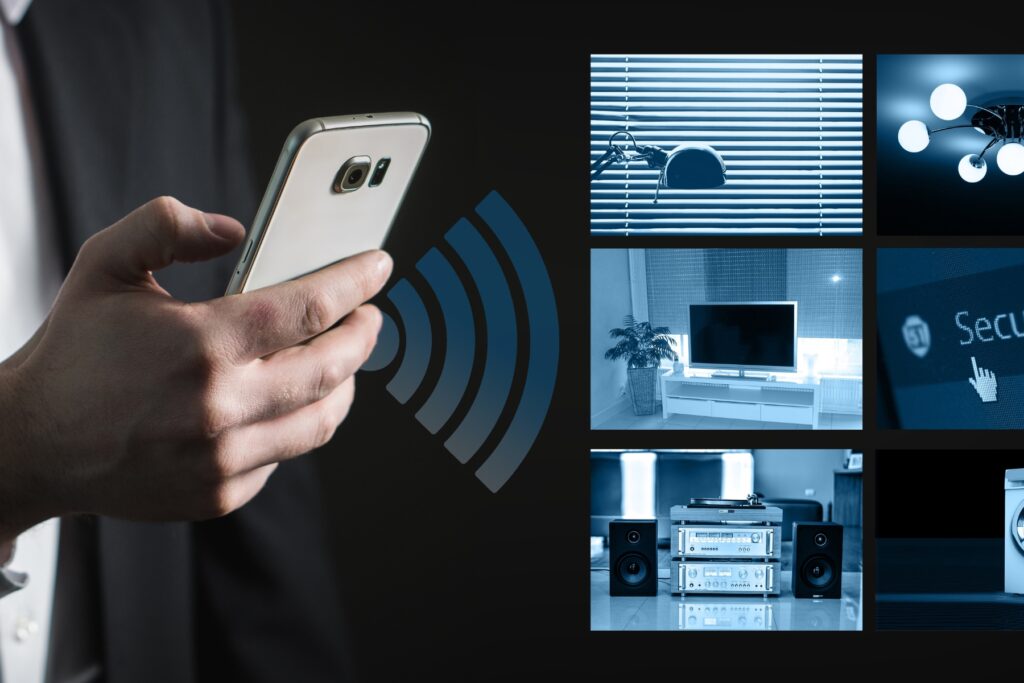Leopard Electric Smart Home Electrical Tips
The world is constantly evolving, and so is the way we live our lives. The rise of technology has brought about a new wave of innovation that has made our homes smarter than ever before. Smart home electrical trends for 2024 are set to take this innovation to the next level. With Leopard Electric, we will explore what smart home technology is all about and how it is integrated into modern homes. We will also dive deep into upcoming trends that are expected to shape the future of smart homes in 2024, from AI integration to advancements in IoT. We will discuss the potential benefits and drawbacks of adapting to smart home technologies, along with a guide on setting up your own smart home. Lastly, we will look at the future of smart buildings and whether we are ready for the smart home revolution that is just around the corner. Leopard Electric is your go-to electrical installer in Southfield and Metro Detro.
Understanding Smart Home Technology
Before diving into the upcoming trends, let’s first establish a clear understanding of what smart home technology entails. A smart home refers to a residence equipped with devices, electrical systems, and appliances that can be controlled remotely or automated to perform tasks seamlessly. These smart devices use advanced technology, such as voice commands and artificial intelligence, to enhance the functionality, efficiency, and security of a home. From controlling lighting and temperature with voice commands to monitoring security cameras through smartphone apps, smart homes are designed to make everyday living more convenient and comfortable.

The Concept of a Smart Home
Enhance your living experience by incorporating smart technology into your home. Simplify daily tasks effortlessly through innovative solutions that boost efficiency. Discover how smart homes seamlessly integrate technology to create a more convenient and streamlined environment. By embracing smart features like smart security systems, electrical upgrades, and home automation systems, you can transform your living space into a hub of advanced functionalities. Experience the benefits of smart home gadgets and smart home products that not only save time but also enhance your lifestyle with their cutting-edge capabilities. Leopard Electric embraces the future of living with the concept of a smart home that offers a harmonious blend of comfort, convenience, and efficiency.
How Smart Technology is Integrated into Homes
Enhancing the functionality of homes, smart technology seamlessly integrates into various home systems. Enjoy the convenience of controlling your living space effortlessly through smart technology. From smart security systems to energy-efficient features, smart technology revolutionizes different aspects of home living, making it more convenient and efficient for occupants. By integrating smart home products and features, individuals can experience a whole new level of comfort and control within their living spaces. With advancements in smart home technology like smart kitchen appliances and home automation systems, the way people interact with their living environments is being transformed for the better.
Upcoming Trends in Smart Home Technology for 2024
As technology continues to evolve, so does Leopard Electric’s commitment to learning the new trends. In the year 2024, we can expect to see some exciting advancements and trends in smart homes. From the integration of artificial intelligence (AI) in electrical systems to the growth of the Internet of Things (IoT), the future of smart home technology is full of promise and potential. Let’s explore these upcoming trends and how they will shape the homes of the future.
AI Integration in Electrical Systems
One of the most significant trends in smart home technology for 2024 is the integration of artificial intelligence (AI) in electrical systems. AI systems, powered by machine learning algorithms, will enable electrical systems to learn and adapt to the needs and preferences of the homeowners. This means that the electrical system of a smart home can anticipate the occupants’ behavior, adjust energy consumption, and optimize efficiency accordingly.
Imagine a home where the electrical system adjusts the lighting, temperature, and energy consumption based on the time of day, the occupants’ habits, and even the weather conditions. AI integration in electrical systems can create a truly personalized and efficient home environment, enhancing the overall living experience.
Furthermore, AI systems can provide insights into energy consumption, identify energy-saving opportunities, and help homeowners make informed decisions regarding energy use. With the integration of AI, smart homes can become more energy-efficient, reducing the environmental impact and saving homeowners on energy costs.
Advancements in IoT for Smart Homes
Another prominent trend in smart home technology for 2024 is the advancements in the Internet of Things (IoT) and its application in smart homes. The IoT refers to the interconnection of devices, appliances, systems, and even vehicles through the Internet, enabling them to communicate and share data. Our experts at Leopard Electric will help you get your electrical system installed and ready for use.
In the context of smart homes, the IoT allows for seamless integration and communication between smart devices, appliances, security systems, and more, creating a unified and interconnected home environment. Here are some of the key advancements in IoT for smart homes:
- Smart appliances: From refrigerators that can create grocery lists to washing machines that optimize energy consumption, smart appliances will become more prevalent in the homes of the future.
- Voice commands and smart speakers: Voice-activated smart devices, such as Google Assistant, Apple HomeKit, or Amazon Alexa, will continue to evolve, becoming more intelligent, responsive, and integrated with various smart home systems.
- Security systems: IoT-enabled security systems will provide real-time monitoring, remote access, and advanced features such as facial recognition, ensuring the safety and security of the home.
- Integration with mobile apps: Smart home devices and systems will have enhanced integration with mobile apps, allowing homeowners to control, monitor, and manage their smart home from anywhere in the world.
- Part of the Internet of Things(IoT): Smart homes will become an integral part of the larger IoT ecosystem, connecting homes to smart cities, energy grids, and other smart infrastructures, further enhancing the efficiency and sustainability of the overall system.
- With these advancements in IoT, smart homes of 2024 will offer an unprecedented level of connectivity, automation, and control, transforming the way we live and interact with our homes.

Exploring the Pros and Cons of Smart Homes
While smart homes offer numerous benefits, it’s essential to consider the potential pros and cons before embracing this technology fully. Let’s explore the advantages and disadvantages of smart homes in the next sections.
Benefits of Adapting to Smart Home Trends
By embracing smart home trends, households can significantly enhance their energy efficiency, leading to cost savings and environmental benefits. The integration of smart security features provides homeowners with peace of mind by offering advanced protection against potential risks. Moreover, the convenience of remotely controlling home devices ensures a seamless and comfortable living experience. Adapting to these technological advancements not only modernizes homes but also improves overall quality of life through the efficient management of energy consumption and heightened security measures. With smart home technology becoming increasingly prevalent, the benefits of transitioning to a more connected and automated living space are undeniable.
The Future of Smart Buildings
The integration of smart technology extends beyond individual homes, with the concept of smart buildings revolutionizing the construction and management of commercial and residential structures. Let’s explore the future of smart buildings and the potential applications of smart technology in building management.

The Role of AI in Building Management
Artificial intelligence (AI) plays a crucial role in the management of smart buildings, optimizing energy use, operational efficiency, and security protocols. Here’s how AI revolutionizes building management:
- AI-powered energy management: AI systems analyze energy consumption patterns, environmental data, and occupancy trends to optimize energy use in smart buildings. They can adjust lighting, heating, cooling, and ventilation systems dynamically, ensuring energy efficiency without compromising comfort.
- Improved operational efficiency: AI systems can monitor building systems, anticipate maintenance needs, and identify anomalies or issues, enabling proactive maintenance and minimizing downtime. These systems can also optimize space utilization, improve workflows, and enhance tenant experiences.
- Enhanced security protocols: AI-powered security systems in smart buildings use facial recognition, behavioral analysis, and real-time data to detect and prevent security threats. They can control access, monitor video surveillance, and alert security personnel in the event of suspicious activities.
- AI brings a level of intelligence, automation, and efficiency to smart buildings that can transform the way we interact with our built environment, making them more sustainable, secure, and comfortable.
Energy Management in Smart Buildings
Energy management is a critical aspect of smart buildings, driving sustainability, cost savings, and efficiency. Here’s how energy management is integrated into smart buildings:
- Reduced energy consumption: Smart buildings leverage advanced energy management systems, monitoring devices, and automation to minimize energy waste and optimize energy use. From lighting control to HVAC systems, energy consumption is monitored, adjusted, and optimized to reduce the environmental footprint of the building.
- Monitoring usage patterns: Energy management systems track energy consumption patterns, identifying energy-saving opportunities and providing real-time data on energy use. This information enables informed decision-making, allowing building owners and occupants to make adjustments and improvements to maximize energy efficiency.
- Integration of renewable energy sources: Smart buildings embrace renewable energy systems, such as solar panels, wind turbines, and geothermal systems, as part of their energy management strategy. By integrating renewable energy sources, smart buildings reduce reliance on traditional energy sources, lower energy costs, and contribute to the development of a sustainable energy ecosystem.
- Energy management in smart buildings is a key factor in achieving long-term environmental sustainability, cost savings, and reduced carbon footprints, creating a more sustainable future for the built environment.
Are We Ready for the Smart Home Revolution of 2024?
The smart home revolution of 2024 is approaching, and the question remains: are we ready? As smart home technology continues to evolve, the real estate and home construction industries will need to adapt to the growing demand for smart home features and products. Homeowners, whether building new homes or upgrading existing ones, will have the opportunity to embrace the benefits of smart home technology, improving their living experience and enhancing the value of their properties.
With the increasing accessibility and affordability of smart home products, and the advancements in AI, IoT, and energy management systems, the smart home revolution of 2024 promises to transform everyday living, making homes more convenient, efficient, and secure than ever before. From voice control and automation to advanced security features and energy-saving options, the possibilities for smart home technology are virtually endless. At Leopard Electric, we are familiar with the newest technology that we will seamlessly integrate with your electrical system.
Contact Leopard Electric Today!
As we approach 2024, the world of smart home technology continues to evolve at a rapid pace. From AI integration to advancements in IoT, the future of smart homes is bright and promising. While there are numerous benefits to adapting to these trends, it’s important to be aware of potential drawbacks as well. Setting up a smart home requires essential devices and installation know-how. Looking ahead, we can anticipate the role of AI in building management and the focus on energy management in smart buildings. The question remains: Are we ready for the smart home revolution of 2024? If you’re interested in exploring these trends further or need assistance with your smart home setup, feel free to get in touch with our experts. Take a look at Our Blog for more information on how Leopard Electric can benefit you.


